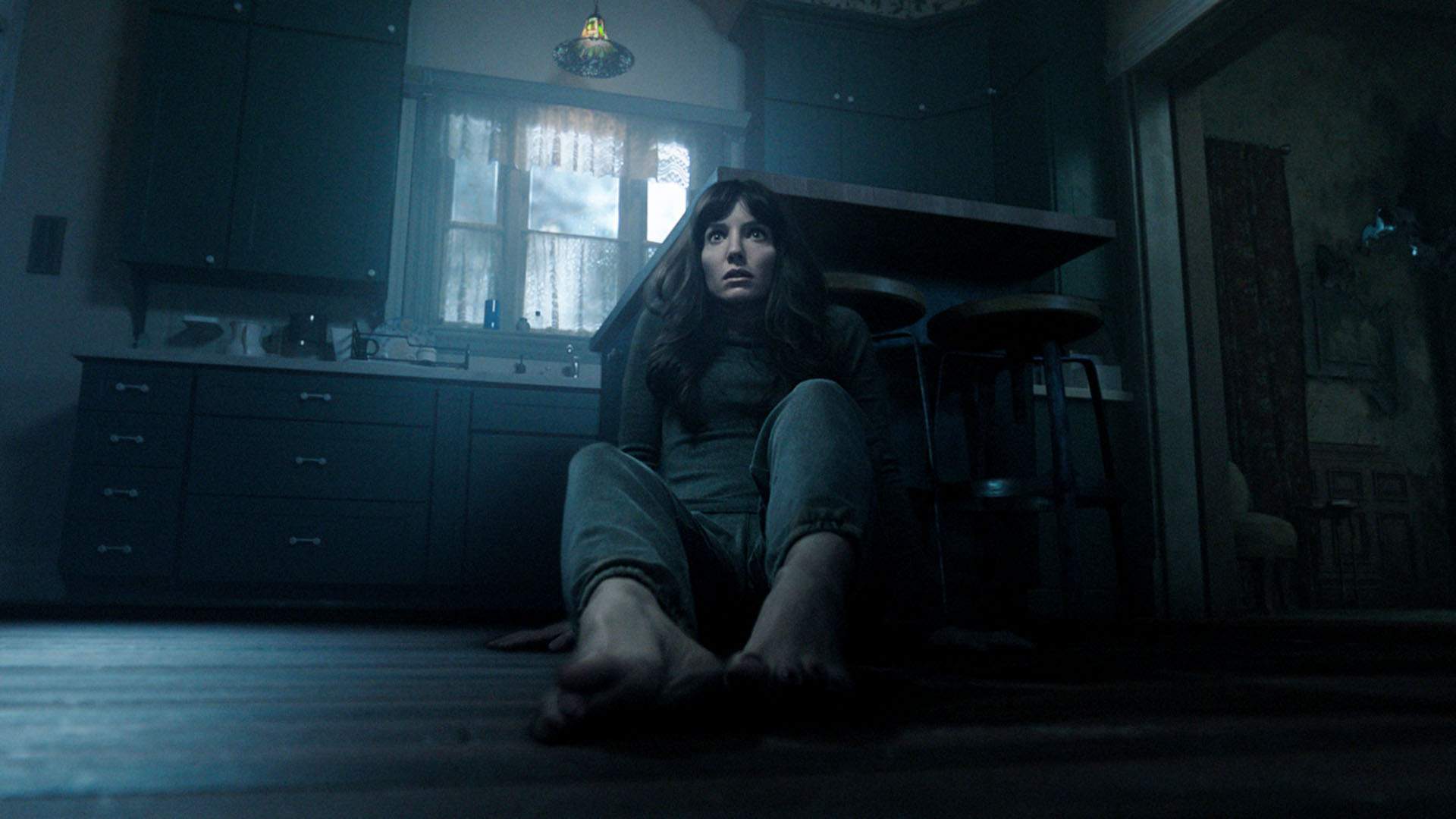Malignant
After a slow start, 70s and 80-inspired body-horror flick from Australian director James Wan evolves into a limb-thrashing, blood-splattering, gleefully chaotic ride.
Overview
Nearly two decades have passed since a pair of Melbourne talents made a low-budget horror flick that became a franchise-starting smash, sparking their Hollywood careers. Thanks to Saw, James Wan and Leigh Whannell experienced every aspiring filmmaker's absolute fantasy — a dream they're still living now, albeit increasingly on separate paths. Wan's latest, Malignant, is firmly grounded in those horror roots, however. Most of the Insidious and The Conjuring director's resume has been, aside from recent action-blockbuster detours to Fast and Furious 7, Aquaman and the latter's upcoming sequel. With Malignant, though, he shows how strongly he remains on the same page as his former collaborator. Anyone who's seen Whannell's excellent Upgrade and The Invisible Man will spot the parallels, in fact, even if Malignant is the far schlockier of the three.
Malignant is also an exercise in patience, because plenty about its first half takes its time — and, when that's the case, the audience feels every drawn-out second. But after Wan shifts from slow setup mode to embracing quite the outrageous and entertainingly handled twist, his film swiftly becomes a devilish delight. Heavily indebted to the 70s-era works of giallo master Dario Argento, David Cronenberg's body-horror greats and 80s scary movies in general, Malignant uses its influences as fuel for big-swinging, batshit-level outlandishness. Most flicks can't segue from a slog to a B-movie gem. Most films can't be saved by going so berserk, either. Wan's tenth stint behind the lens can and does, and leaves a limb-thrashing, blood-splattering, gleefully chaotic imprint.
Perhaps it's a case of like name, like approach; tumours can grow gradually, then make their havoc felt. Regardless, it doesn't take long within Malignant for Dr Florence Weaver (Jacqueline McKenzie, Miss Fisher and the Crypt of Tears) to proclaim that "it's time to cut out the cancer" while treating a locked-up patient in the film's 1992-set prologue. This is a horror movie, so that whole event doesn't turn out well, naturally. Jump forward a few decades, and the feature's focus is now Seattle resident Madison Mitchell (Annabelle Wallis, Boss Level), who is hoping to carry her latest pregnancy with her abusive husband to term. But then his violent temper erupts again, she receives a head injury, and childhood memories start mixing with visions of gruesome killings linked to Dr Weaver's eerie hospital — visions that Madison sees as the murders occur.
Bearing telepathic witness to horrific deaths is an intriguing concept, although hardly a new one — and, that aforementioned first scene aside, it's also the most interesting part of Malignant's opening half. Wan and screenwriter Akela Cooper (Grimm, The 100) play it all straight and obvious, including when the cops (Containment's George Young and Songbird's Michole Briana White) are skeptical about Madison's claims. That leaves only her younger sister Sydney (Maddie Hasson, Mr Mercedes) believing what's going on, and leaves the movie a plodding psychological-meets-supernatural thriller predicated upon routinely predictable but improbable character decisions. It makes the second half feel positively electrifying in contrast, when the big shift in tone comes, but also makes viewers wonder what might've been if that lurid look and kinetic feel had been present the whole way through.
When the change arrives — with exactly why and how clearly one of those horror-movie details best discovered by watching — Malignant proves deliriously riveting. It sports a creepy yet slinky vibe, as well as a surging and hypnotic sense of physicality, all attuned to an inventive revelation that's all its own. The script's huge surprise isn't actually hard to pick, but Wan's execution is masterful and mesmerising. Here, the film becomes gloriously slick and pulpy, instead of relying upon the usual gradual zoom-in shots or sticking with an almost-house style (cinematographer Michael Burgess also lensed the Wan-produced Annabelle Comes Home, The Curse of the Weeping Woman and The Conjuring: The Devil Made Me Do It). It also evolves from a formulaically jangling score and soundscape to one with nervy purpose, embraces the kind of ridiculousness that'd be downright silly if it wasn't so well done, and adds a fresh sense of spirit to the possession-fuelled side of the genre.
Wan has rarely made dull movies, after all, which is another reason that Malignant's long-gestating first section feels like a drag. Indeed, when the sagas his movies have sparked have been at their most generic, he hasn't been at the helm. That said, the fact that Malignant truly needs to grow on its audience, that it's firmly a picture of two halves, and that it starts with the unrestrained, lets it fall away, then sneaks up on the unsuspecting — that really couldn't be more apt once the film spills its narrative secrets.
While Malignant isn't a character study by any means, Wallis breathes as much depth as she can into Madison in the movie's flatter half — and, in her third appearance in a Wan-related flick after The Conjuring spinoffs Annabelle and Annabelle: Creation, commits to the lunacy when it hits. Her co-stars have a much more standard time, including acclaimed stuntperson and Quentin Tarantino regular Zoe Bell (Once Upon a Time in Hollywood) in a brief appearance, but this isn't a performance-driven film, either. It also isn't all that scary. Although Malignant can be sublimely off-kilter, that isn't the same eliciting genuine bumps and jumps. Still, when a horror flick shocks, delights and takes viewers on the type of wild and audacious ride that Malignant eventually serves up, it stands out. And yes, like much of Wan's work, it'll undoubtedly spawn a franchise.





